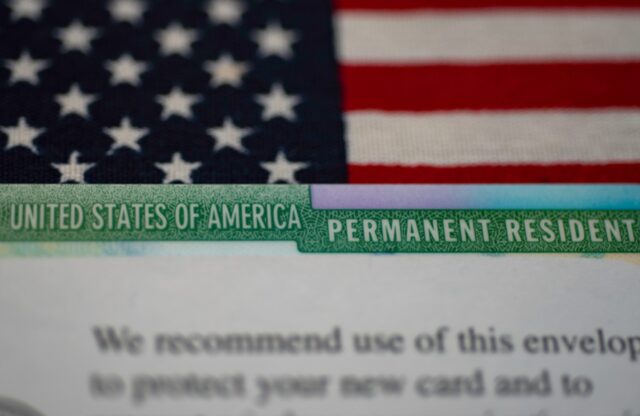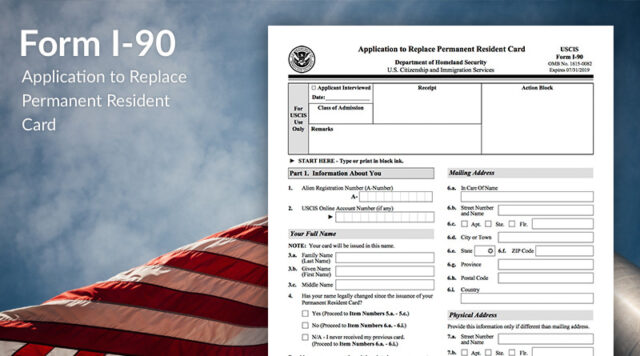
Divorces have become a common thing in the last few decades. Depending on your situation, it can be either a fortunate or unfortunate event in your life. Whatever the case may be, one thing is still true. Divorcing your spouse will be emotionally straining either way. On top of all that, a divorce can cause a quite financial disturbance and can even affect one’s status as an immigrant in the United States of America. One thing is common for all immigrants in the US – they are carriers of some kind of green card.
Can a divorce disrupt your resident status in the US and will it affect your green card? The answer to both of those questions is not that simple. There are a few scenarios and possible outlooks, both good and bad for the green card carrier. If you’re in a situation where you’re filing some of the forms regarding citizenship or residence in the United States, you may need to consider will the divorce affect your status in any way and if it will – in what way. Before any dealings with USCIS or U.S. Citizenship and Immigration Services, you might want to read the rest of this article, just so you know what you can expect and how to approach the situation.

Renewing The Green Card After Divorce
The usual scenario is that most of the green card holders don’t have any problems renewing their green cards after the divorce. That is if you are a legal, permanent resident of the United States with a 10-year green card. If this is the case, renewing your green card will be a walk in the park. All you have to do is fill out and file an Application to Replace Permanent Resident Card, commonly known as Form I-90. That will allow you to renew or replace your existing green card. No questions whatsoever will be asked considering your failed marriage. In other words, if you’re a holder of a 10-year green card, that grants you permanent residency, the marriage status does not affect your status as an immigrant in the United States. If you have some additional questions, and are not certain regarding your legal troubles, you can always reach out to Law SB if you have any questions and check if you understood everything correctly.
Changing The Green Card After The Divorce
If you’re a holder of a 10-year green card and a divorcee that has decided to legally change their name or revert to the maiden one you can do it. All you need to do is have a legal document to act as proof of the name change.

Conditional Green Card’s Status After Divorce
If you have received or attained a conditional green card through marriage to a U.S. resident or citizen, you may have some issues concerning your residential status. In cases like this, meaning if a non-green card holder marries a U.S. citizen or a permanent resident, the person in question is granted a 2-year conditional green card. This green card is issued to prevent possible marriage and residency frauds. A two-year period allows for USCIS to appraise the marriage and check if the marriage is genuine or for the sake of obtaining a green card. After the two-year period, the couple in question must file a Form I-751 to prove their marriage isn’t a fraud. That way, you can apply for a 10-year green card.
The problem may arise in case of a divorce. If you haven’t gotten a 10-year green card before you’ve divorced, you can still file an I-751, but you will have to prove to USCIS that the marriage was entered for the right reasons. You’ll need to present the USCIS with evidence that proves the marriage was, in fact, real, but has unfortunately failed. One thing to remember is to consult before filing for I-751, because, if you fail to prove the validity of the marriage, you might end up being deported.
Divorce During Green Card Application Approval
Considering that the process of obtaining an immigrant visa or a green card isn’t automatic, a divorce before the approval of the application will result in the application termination. If a person ends up divorced before being approved for a green card, the marriage, which was what made the person eligible for a green card in the first place, is no longer existent, therefore, the grounds for applying for the green card are also no longer existent.

Divorce In Cases Of Derivative Applicants
In the U.S., there are a few ways for you to obtain a green card. You can either be sponsored by a spouse that is a U.S. citizen or a permanent resident, which we’ve talked about previously, or you could be sponsored by an employer and therefore eligible to sponsor your immediate family. Meaning, you’re a green card holder because of a job, therefore, your spouse and underage children are eligible for a green card through you.
For example, John Doe is a green card holder due to employment. His wife, Jane, is therefore eligible to be sponsored for a green card as well. Their kids Jack and Jill, both 10, are also eligible.
However, in case of the divorce that happens during an application approval process for Jane and the kids, meaning, before the actual approval of the green card, the sponsored spouse, in this case, Jane, loses its eligibility for a green card and the process stops. The marriage was the only thing that was granting Jane a possibility for a green card. As for the kids, they could still become green card holders if John gets custody.
If the divorce occurs after the approval, meaning the whole family becomes a green card holder, there should be no problems concerning the residency status during the green card duration. Upon expiration, depending on whether it was a 2-year or a 10-year green card, the process previously mentioned takes place.
Seeing how this is a somewhat complicated process in general, it might be best to have some guidance through it. If you’re interested in simple, step-by-step guidance concerning immigration applications, how to fill out and prepare forms, whether you are eligible or not, interview coaching and preparation, you could, and probably should, read more about it here. I-immigrate.org is a great site where you can expect excellent service, support and proper guidance along with all the necessary help. Everything about living and working in the USA is presented there.









